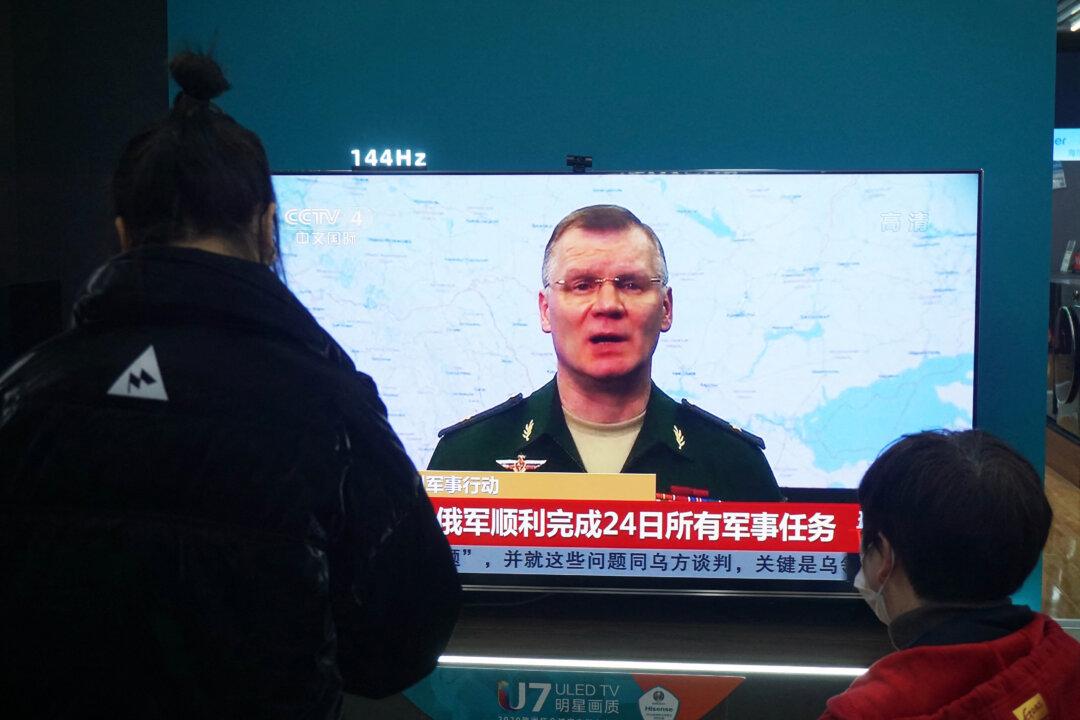If Russia needs to find some support amid the piling Western condemnation for its invasion of Ukraine, all it takes is a browse on the Chinese internet.
In China’s tightly controlled online space, pro-Moscow sentiment dominates. Celebrities are chastised for voicing sympathy for Ukraine. Hawkish Russian remarks are cheered. And some Chinese users describe Russian President Vladimir Putin as a hero standing up to the West.





